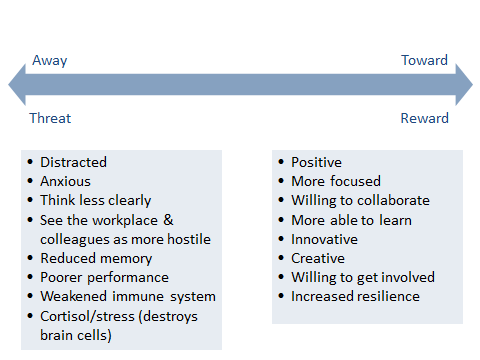
As we know, employee engagement is nothing new and when I present on the benefits to organisations, based on my own and clients experiences, along with research from the National Centre for Strategic leadership/ Engage for success taskforce, I tend to get the feedback saying “We know all this” or “We do all of this”. Surprising then that the engagement feedback surveys or Cultural assessments say something quite different.
I often ask “So what would your front line people say if I asked them?”. Again its “They all love us and they’re on board” Of course on talking with the supervisors, first line managers and front line its often something quite different.
So where’s the disconnect? Maybe engagement is seen as yet another ‘thing to do’ in a busy work schedule so doesn’t get done. Maybe it’s seen as ‘yet another initiative’ which isn’t sustainable and will send the same message as all the other failed initiatives. Whatever the reason I would argue that ‘engagement’ isn’t something we need to do, but ‘engaging’ is something we should just be and just be doing. If you are looking for sustainability (and why wouldn’t you be) you absolutely need collaboration, innovation and discretionary effort from all, something you get from engaging with the workforce.

The impact of engaging leaders at all levels of the organisation is now well understood in terms of the impact on safety, productivity, wellbeing, risk, efficiency and recruitment/retention strategies and therefore organisational impact. Who would want to work for an organisation where the leaders say one thing and do another, where the mangers actually care more about productivity than about you and learned helplessness is rife because nobody does anything about your suggestions for improvements. Can you imagine the impact on your brand with your workforce saying “They don’t care about us here”.
As we know replacing employees who have been through induction, training, mentoring has cost the organisation time, effort, energy i.e. resources (and not just financial). This can often be up to 150% of the departing employee’s salary.
The evidence from the Engage for Success report (2012) shows that highly engaged organisations have the potential to reduce turnover by around 85%. This was supported in some way by Gallup who showed that organisations in the bottom quartile had 30% more turnover than those in the top. Putting that into context Rentokil found that their teams that most improved their engagement saw retention increase by almost 7% providing an estimated saving of almost £ 7 million. (engage for success).
I would suggest that organisations should be wary of paying lip service to engagement strategies as future potential employees are increasingly looking for organisations who have progressive employee practices through:
- Strategic narrative
- Engaging managers
- Employee Voice
- Leadership Integrity – behaviours consistent with values
(Hilary Scarlett – Engage for success 2014)
Don’t think that engagement is a fluffy, holistic subject. It’s backed by real science, it’s about emotional intelligence and has an impact on the future of your company.
By Kevin Hard
